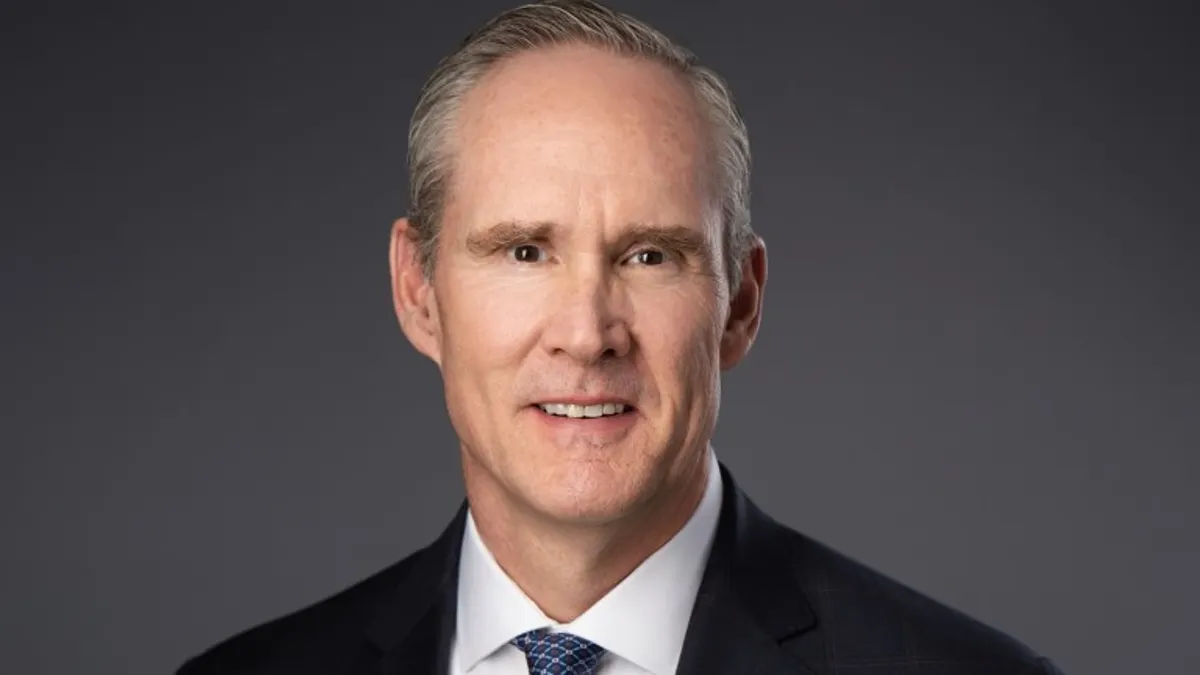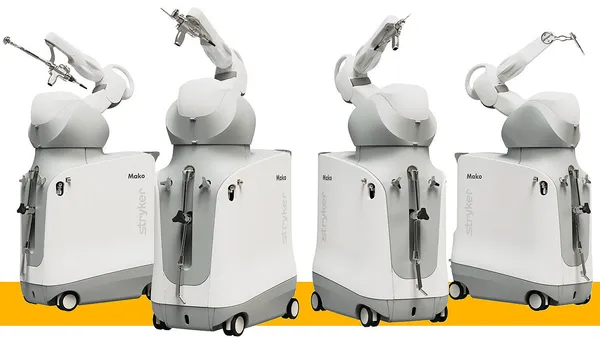Olympus has been through several changes recently. In April, the global endoscopy firm named Bob White as its incoming new CEO. In June, the Food and Drug Administration implemented an import ban on some of the company’s devices over quality system failings at a site in Japan.
Despite these challenges, Olympus partnered with Revival Healthcare Capital this summer to start a GI robotics firm. The company has also invested in artificial intelligence technologies, launching a suite of endoscopy apps called Olysense in September, including a feature to help detect and characterize polyps during a colonoscopy.
MedTech Dive recently spoke with White and Chief Strategy Officer Gabriela Kaynor to learn more about their quality and technology priorities, and what’s next with the surgical robot.
On the import alert
Before the FDA’s import alert, Olympus received three warning letters from the agency between November 2022 and March 2023. White, who held leadership roles at Covidien and Medtronic before becoming CEO of Olympus, said he knew going into his new position that the company had received these letters.
“But quality in medtech, I know with the right team, the right process, the right people, you can address it. So it didn't scare me,” he said. “What I knew once I got in was we had an incredible team working really hard for the past three years to fundamentally get at our core issues around quality.”
White thinks the import alert is tied to the warning letters, and he expects it will be lifted after the company has successful site re-inspections. The CEO added that the timing will be up to the FDA.
On the surgical robot partnership
Olympus and Revival in July partnered to form Swan Endosurgical, a Boston-based company building a surgical robot initially focused on GI treatments. The companies agreed to invest $458 million, with Revival taking a majority stake and Olympus having an option to acquire the startup.
White acknowledged there are a lot of players in the robotics space, where Intuitive is the market leader in soft tissue procedures, and large medtech firms and startups alike are developing new products. White said he worked on a soft tissue robot at Medtronic, where he most recently worked as president of the company’s medical surgical portfolio.
“But an endoluminal robot in the GI space, nobody has done that,” White said.
Kaynor added that the idea to focus on a GI robot also came from the company’s vision of the future of endoscopy. While traditional endoscopy is already minimally invasive, an endoluminal robot could help with complex procedures that occur deep in the colon.
“The percentage of endoscopists who are trained in these very intricate and delicate procedures is very low, because the training to be able to do that is very extensive,” Kaynor said.
White added that Olympus and its partner decided to create a separate company, rather than building a robot inside of Olympus, to give Swan Endosurgical the speed and agility of a startup with the resources of a big company.
On AI and innovation
Big picture, the technologies that Olympus’ CEO is most excited about include AI, surgical robotics, single-use scopes and other innovations in its core business, such as scopes with an extended depth of field.
White said Olympus will continue to offer reusable scopes that are fit for purpose, but some specialties, such as urology and respiratory, may be better suited to single-use scopes. In September, Olympus partnered with MacroLux Medical Technology to distribute single-use urology products.
Kaynor said Olympus approaches innovation by thinking about what the company can bring to the endoscopy suite to address unmet needs and elevate the standard of care.
For example, the recent launch of an AI feature to help detect colorectal polyps could help gastroenterologists detect lesions faster and with more precision, Kaynor said. It could also help them find high-risk and hard-to-detect adenomas, or noncancerous tumors.
Olympus is also thinking of ways to help gastroenterologists with documentation and other administrative tasks.
“We were super deliberate about saying, in our AI journey, we want to focus first on product and solutions,” Kaynor said, “because we're an innovation company, and that's what we're good at.”














